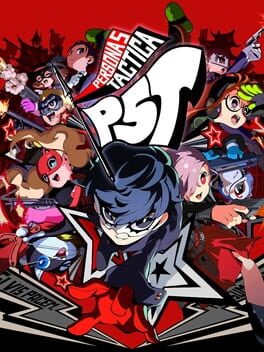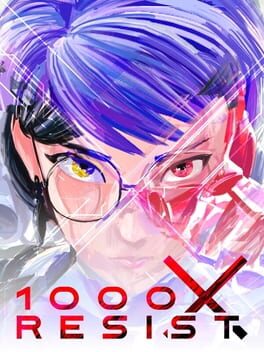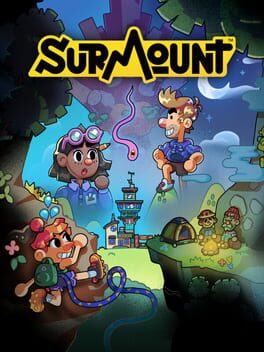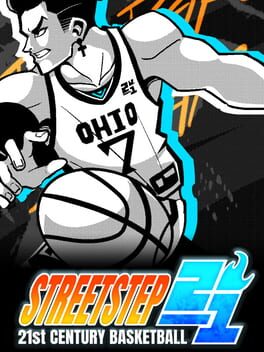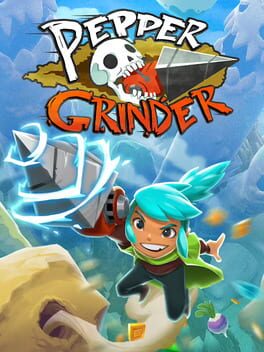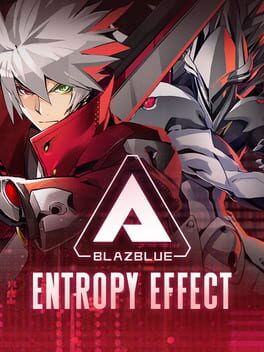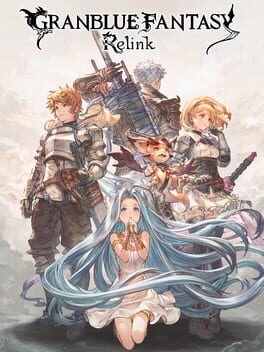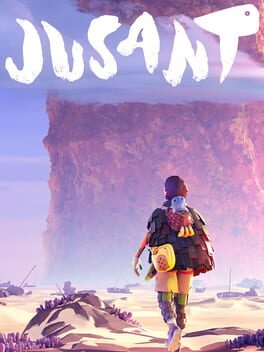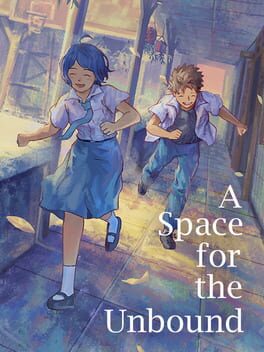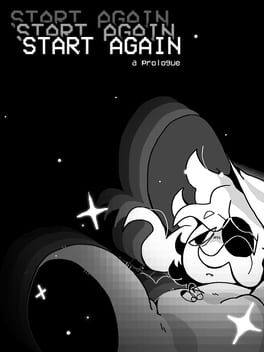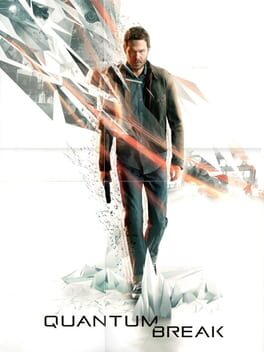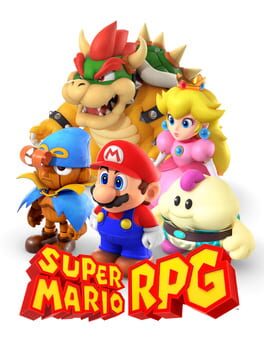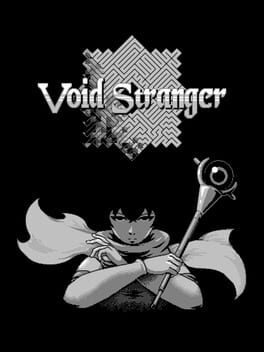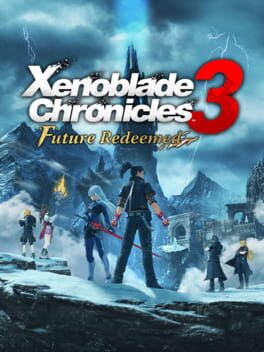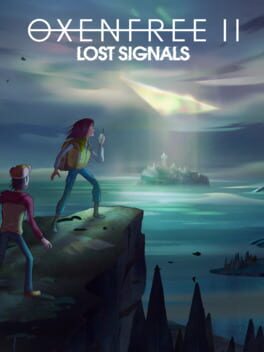JackLeveledUp
2023
The one and only problem I have with this game is that the story...is...bad. It's peak 'flanderization' of the P5 cast. They follow a new character as the protagonist, a young, tortured politician with no apparent sense of justice or ideology besides "being nice"...? Was anybody gonna' tell these writers this is NOT how revolutions work?
If that's not a dealbreaker, this is a really fun adaptation of the classic "One More" mechanic. Rather than elemental weaknesses, Tactica hinges on a "cover" system, where ending a character's turn near a wall or obstacle protects them from attacks. You can expose enemies out of their cover by either hitting them with an elemental status effect or by melee attacking them, comedically flinging them out into the open. Exposed enemies grant an additional turn when hit. Thus, the core thrust of the game is finding ways to leap frog your turns across each map, dealing as much damage as possible without leaving your team vulnerable in the process.
If that's not a dealbreaker, this is a really fun adaptation of the classic "One More" mechanic. Rather than elemental weaknesses, Tactica hinges on a "cover" system, where ending a character's turn near a wall or obstacle protects them from attacks. You can expose enemies out of their cover by either hitting them with an elemental status effect or by melee attacking them, comedically flinging them out into the open. Exposed enemies grant an additional turn when hit. Thus, the core thrust of the game is finding ways to leap frog your turns across each map, dealing as much damage as possible without leaving your team vulnerable in the process.
2024
There's a common criticism of games as a medium that even their best narratives lack something in comparison to those of books, movies, etc. And while games are what I love, from a narrative perspective I have found that framing hard to disagree with. There are several games that have changed my life, but they are so often unsophisticated in their meaning-making. They are frequently blunt in their delivery and single-purposed, perhaps because it is so difficult to do all of the creative mediums at once and tell a story with interactivity. I love games because of that ambition, and yet...
I think 1000xResist actually defies that notion. And I don't mean to say that as if everyone who plays this will have their life changed forever or whatever, but it IS one of the most thought-stirring games I've ever played. It is utterly overflowing in meaning. It is not impressive merely "because it is a video game," or because of clever interactions that "could only happen in a game," yet all the while it makes shrewd use of its interactivity. It's the kind of narrative where truly nothing is without purpose, and I spent its entire runtime learning how to reinterpret past scenes, adding layers to the meaning that I had already derrived.
I'm afraid all of that is going to come across like I'm just dumping hyperbole on it without getting specific. It is sort of a challenge to articulate what it speaks to, because there truly is so much: it speaks to the experience of COVID-19, of the tension between immigrant parents and their children, of fitting in, of finding one's purpose, of generational trauma, of mental health, and so much more.
"But isn't this just the way? We do not get to choose what we inherit."
I think 1000xResist actually defies that notion. And I don't mean to say that as if everyone who plays this will have their life changed forever or whatever, but it IS one of the most thought-stirring games I've ever played. It is utterly overflowing in meaning. It is not impressive merely "because it is a video game," or because of clever interactions that "could only happen in a game," yet all the while it makes shrewd use of its interactivity. It's the kind of narrative where truly nothing is without purpose, and I spent its entire runtime learning how to reinterpret past scenes, adding layers to the meaning that I had already derrived.
I'm afraid all of that is going to come across like I'm just dumping hyperbole on it without getting specific. It is sort of a challenge to articulate what it speaks to, because there truly is so much: it speaks to the experience of COVID-19, of the tension between immigrant parents and their children, of fitting in, of finding one's purpose, of generational trauma, of mental health, and so much more.
"But isn't this just the way? We do not get to choose what we inherit."
A great set of mechanics that feels held back by randomly generated stages. I played on Switch, and ended up dropping it in the second region - partially due to performance issues. The game runs great until you hit adverse weather, and then the frame rate gets aggressively choppy whether you're docked or not.
This would've hit so hard in the early iOS's $1-5 game era. It's fun and flashy, and does a great job approximating basketball playmaking...at least offensively. Defensively, well, I think it's nearly impossible to play.
It has a real "just pick up and play" simplicity that could be nice for a little split screen. But that simplicity is also its downfall, as it's assuredly not sticky enough to hold your attention for long.
It has a real "just pick up and play" simplicity that could be nice for a little split screen. But that simplicity is also its downfall, as it's assuredly not sticky enough to hold your attention for long.
2024
I loved the platforming core as shown in the demo, but the boss fight that immediately follows in the full game was astoundingly unfun. It seriously feels like a prank. The level of precision it demands was totally unexpected, and the only accessibility option is to slow the entire game down. No thanks!!
Unamazing, but definitely fun. I love that it takes the fantasy of playing these characters and explores that in a highly approachable, hack-and-slashy context. Unlocking characters is weirdly grindy, though, and the gameplay isn't quite varied enough to me to sustain that grind without those character unlocks, so I'm tapping out after a few early full clears.
Relink can be astoundingly good as a fast-paced boss fight action game, but it's not without issues. Before you see any of its best encounters, it'll test your loyalty with a mediocre 15 hours of story (blocking all meaningful co-op play) as well as some extremely unintuitive build paths and progression methodology (save scumming, critically important but unexplained loot traits, red herring grinds, etc). Some of the weird end-of-the-endgame stuff has soured me a little, but I loved this game enough to play over 100 hours in a month, and that's not normal for me.
Here's the best way I can explain the appeal of this game: do you want to fight giant anime dragons? Do you want to hear songs like this while you do that? Obviously you do, right?
Here's the best way I can explain the appeal of this game: do you want to fight giant anime dragons? Do you want to hear songs like this while you do that? Obviously you do, right?
2023
It looks great, the soundtrack is pretty, and the climbing feels mechanically comfortable, yet physical and realistic. Shouldn't I be having a good time?
I think something about this level design is so unsettling. I'm perpetually haunted, wondering whether I'm going "the right way," or towards a collectible I'm not really invested in, or on a fool's errand down some decorative, diegetic dead end. I made it to Chapter 3 when the frustration finally overtook me.
I think something about this level design is so unsettling. I'm perpetually haunted, wondering whether I'm going "the right way," or towards a collectible I'm not really invested in, or on a fool's errand down some decorative, diegetic dead end. I made it to Chapter 3 when the frustration finally overtook me.
2016
In the aftermath of Alan Wake 2 and Control, there is a real "sophomore project" energy to Quantum Break. It's an almost obnoxiously of-its-time cinematic action shooter, complete with all of the requisite platforming jank and pixel hunting for too many hidden collectibles ("narrative objects," a name that's as great as it is bad).
Unfortunately, and evidently: this game was published by a version of Microsoft Studios that needed to sell the world on their Xbox One hardware and their bizarre vision of a directly television-inspired gaming medium. This narrative's "mass market" tone, casting, and "cool and detached" characterization felt so distracting to me. I sorely missed that "self-serious yet extremely not at all" demeanor that Remedy are known for. That said, what a gift it was to have Lance Reddick in here. Holy shit was he exactly as good as always in this! I miss him so much, still, as I'm sure all of us do.
Despite all of that, there is something here. The theming IS compelling, and zipping up to time-slowed enemies to blast them with a shotgun felt cool every time. I played with a controller, and the aim assist clearly kicks in when you quick scope...so that almost became its own mechanic to me. I'd blip about each arena, briefly stopping to pop shots while hammering the left trigger to "aim bot" my way through every fight. It felt right. But I don't know - unless you're a Remedy historian, maybe you should just go play Vanquish.
Unfortunately, and evidently: this game was published by a version of Microsoft Studios that needed to sell the world on their Xbox One hardware and their bizarre vision of a directly television-inspired gaming medium. This narrative's "mass market" tone, casting, and "cool and detached" characterization felt so distracting to me. I sorely missed that "self-serious yet extremely not at all" demeanor that Remedy are known for. That said, what a gift it was to have Lance Reddick in here. Holy shit was he exactly as good as always in this! I miss him so much, still, as I'm sure all of us do.
Despite all of that, there is something here. The theming IS compelling, and zipping up to time-slowed enemies to blast them with a shotgun felt cool every time. I played with a controller, and the aim assist clearly kicks in when you quick scope...so that almost became its own mechanic to me. I'd blip about each arena, briefly stopping to pop shots while hammering the left trigger to "aim bot" my way through every fight. It felt right. But I don't know - unless you're a Remedy historian, maybe you should just go play Vanquish.
2023
It's hard to find an RPG that prioritizes innocent fun as much as Mario RPG does. ArtePiazza's remake carries that spirit forward and adds enough modern usability niceties that I can't imagine any reason to play the original instead.
There are some things that struck me this time around: how it instantly throws you into the action, how efficiently it works through character arcs, and the almost obscene variety of mini games. Honestly, so many RPGs feel less complete after 40+ hours than this game feels in like twelve.
There are some things that struck me this time around: how it instantly throws you into the action, how efficiently it works through character arcs, and the almost obscene variety of mini games. Honestly, so many RPGs feel less complete after 40+ hours than this game feels in like twelve.
2023
An endlessly surprising "sokoban"/tile-based puzzler that builds entire mechanics out of "cheating."
By this point, though, there are a lot of games that get treated like: "oh you just gotta play it, it's so special and unique, I can't possibly talk about it, just trust me bro." So I want to try to be more specific about what works, if that's something you want to hear.
For one, the puzzles are great, and it cycles through different mechanics quickly enough that you shouldn't ever feel too stumped for too long. There are some clever and opaque tricks involved with the difficulty balancing and "fail states"...so try not to worry about failure at all. And I think if you play it, you'll find yourself continuously shocked by how far they are able to push the tile-based puzzle format.
The story feels appropriately minimalist at first, but it gradually becomes more layered alongside the mechanics. I should note that it's extremely character and lore focused - possibly my main nitpick of this game is that there isn't more of a pronounced central message in play. But there are several character moments that I was moved by, and at times it hits hard enough that you might even forget that you're playing a puzzle game. It's impressive exactly how well it's all thought out, too, because visual and mechanical symbolism are alllll over this game.
The complexity develops gradually over the course of the game, but it reaches such a point where it can actually be hard to determine how to progress. For some people, I think that could be an exit point...but to me, it became extremely satisfying to test hypotheses, revisit the things I hadn't quite figured out, and eventually: discover what I was missing. I do wonder how these moments will feel when the game becomes "more known," and when there are clearer guides on how to see everything this game has to offer. All of that is to say, if this seems like something you're interested in, I think the sooner you play it, the better it'll be.
By this point, though, there are a lot of games that get treated like: "oh you just gotta play it, it's so special and unique, I can't possibly talk about it, just trust me bro." So I want to try to be more specific about what works, if that's something you want to hear.
For one, the puzzles are great, and it cycles through different mechanics quickly enough that you shouldn't ever feel too stumped for too long. There are some clever and opaque tricks involved with the difficulty balancing and "fail states"...so try not to worry about failure at all. And I think if you play it, you'll find yourself continuously shocked by how far they are able to push the tile-based puzzle format.
The story feels appropriately minimalist at first, but it gradually becomes more layered alongside the mechanics. I should note that it's extremely character and lore focused - possibly my main nitpick of this game is that there isn't more of a pronounced central message in play. But there are several character moments that I was moved by, and at times it hits hard enough that you might even forget that you're playing a puzzle game. It's impressive exactly how well it's all thought out, too, because visual and mechanical symbolism are alllll over this game.
The complexity develops gradually over the course of the game, but it reaches such a point where it can actually be hard to determine how to progress. For some people, I think that could be an exit point...but to me, it became extremely satisfying to test hypotheses, revisit the things I hadn't quite figured out, and eventually: discover what I was missing. I do wonder how these moments will feel when the game becomes "more known," and when there are clearer guides on how to see everything this game has to offer. All of that is to say, if this seems like something you're interested in, I think the sooner you play it, the better it'll be.
For a lot of this expansion, I felt like the plotting was a bit too dense for the new characters to have any room to breathe, but the good news is that they really freaking stick the landing. It ends up as this beautiful tale of what it looks like to take responsibility and try to change the world for the better. This theme is meaningfully expressed on its own, but the more history you have with "Xeno" games as a whole, the harder it's going to hit.
Not to mention: the soundtrack is peak, the open world RPG design is peak, the new progression systems peak...at this point, Monolith Soft are legitimately in a class of their own.
Not to mention: the soundtrack is peak, the open world RPG design is peak, the new progression systems peak...at this point, Monolith Soft are legitimately in a class of their own.
Lost Signals follows a shockingly small main cast: mainly two adults on a world-saving mission while they're neck-deep in their own problems. It's quite the departure from the first game's "five teens on a beach with some weed brownies and a spooky cave."
Over time I grew to like Riley, when her real character motivation was finally revealed late in the story (why is this held back for so long??). Jacob, on the other hand...I never really felt anything positive for. He's a constant bummer! I understand what they're going for, but he's hardly the kind of person you would want chatting at your back while hiking through the woods for work at 3am. It certainly would've helped if we had some other context or character to switch their interactions up.
It at least ends well, and I respect that the team seems to have wanted to make something other than "back at it again on Edwards Island with 5 more teens!" It's just disappointing that it feels so far from succeeding in the things that the first game was commended for.
Over time I grew to like Riley, when her real character motivation was finally revealed late in the story (why is this held back for so long??). Jacob, on the other hand...I never really felt anything positive for. He's a constant bummer! I understand what they're going for, but he's hardly the kind of person you would want chatting at your back while hiking through the woods for work at 3am. It certainly would've helped if we had some other context or character to switch their interactions up.
It at least ends well, and I respect that the team seems to have wanted to make something other than "back at it again on Edwards Island with 5 more teens!" It's just disappointing that it feels so far from succeeding in the things that the first game was commended for.
